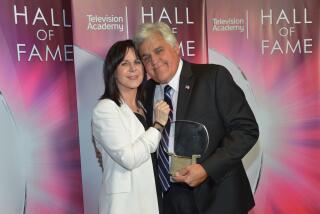State denies license, opens probe
One of California’s most prominent professional conservators has been denied a license by the state and is the focus of a grand jury investigation.
The decision to deny Melodie Jo Scott a license marks a significant shift in the oversight of professional conservators, who answered only to probate judges until a 2005 Times series highlighted abuse in the field and prompted a licensing requirement that took effect in January.
Until this year, conservators, who control the healthcare and finances of adults deemed in Probate Court to be incapable of looking after themselves, were less regulated than hairdressers and guide-dog trainers. The Times series described how some were able to gain control over the lives and finances of elderly adults without their knowledge or consent, neglect their wards, isolate them from relatives, run up fees and in some cases steal from their clients.
The state’s Department of Consumer Affairs alleges that Scott, a former president of the state industry group that represents professional guardians, falsely claimed on her license application she had never stepped down from any case -- or settled a dispute -- after a complaint had been filed against her in court. In denying Scott’s application, the agency cited three cases it said she should have disclosed.
Two of those cases were among dozens reported by The Times that examined allegations of abuse by professional conservators. The articles prompted lawmakers to enact sweeping reforms of the state’s conservatorship system and to create the licensing board that denied Scott’s application.
In an interview, Scott denied lying on her application. She accused state officials of singling her out for political reasons in the wake of the newspaper’s reports.
Scott, whose business is based in Redlands, has appealed the denial but said she will have to halt work temporarily. Riverside County’s Probate Court has scheduled hearings next month to determine whether she should be removed from several cases because she lacks a license.
“I’m done. I’m out,” Scott said. “When I get my license back, I can start again. But, hey, I’m 50.”
Scott’s licensing problems come as the San Bernardino County grand jury is examining many of her cases as well as others handled by a former associate, Lawrence A. Dean II.
Records show that Probate Court officials began delivering case files involving both conservators to the grand jury in October. They provided more files as recently as last month.
Scott said one of her clients was called to testify before the panel. She said that the probe is the second investigation by a grand jury into her work and that she expects the panel will find she has acted properly.
“Let the grand jury do their investigation,” Scott said. “There’s nothing to find.”
Dean, who is licensed by the state, did not return calls seeking comment.
Among the cases the state cited in refusing to license Scott was that of Helen Jones, a Yucaipa widow who fought to get out from under Scott’s control. Jones’ case became a symbol of the system’s flaws during debates in Sacramento on the need for reform.
Nearly deaf and having a rare nervous-system disorder that limited her mobility, Jones insisted that she had not understood what she was signing when she agreed to allow Scott to become her conservator in 2002.
Scott spent about $200,000 of her client’s life savings on new appliances and caretakers, items Jones said she did not want nor need.
Jones sought to end the conservatorship, complaining in court papers about Scott’s spending and treatment of her. In 2006, Scott resigned when Jones’ step-grandson, Mike Tomazin, agreed to replace her.
Jones died two years ago of pneumonia and other complications. Tomazin said Jones would have been happy to learn that Scott’s license was denied as a result of her fight.
“I guess what goes around comes around,” Tomazin said.
Scott said that she did nothing wrong in Jones’ case and that she was simply caring for someone unable to manage her own affairs. She said she was unfairly portrayed in the dispute and stopped taking new cases after the Times articles.
“I did what I should have done,” Scott said. “When it got uncomfortable and she was uncomfortable with me, I resigned.”
In another of the cases cited by the state, Scott was accused of allowing another professional conservator, Sarah Kerley, to live rent-free in a mentally ill client’s Glendale house for months. Kerley was married to Scott’s brother at the time.
The client’s daughter complained about the arrangement in court filings. As a result, Scott settled the case, agreeing to resign as conservator in favor of the daughter.
State officials said the third case cited in their denial was a San Bernardino County conservatorship that also involved the settlement of a legal complaint.
Scott said she did not believe the legal objections in the three cases would be counted as complaints when she filled out her license application in March 2008. In addition, she accused the state of allowing other conservators who filled out the application form in a similar fashion to make amendments.
The state’s Professional Fiduciaries Bureau, which licenses professional conservators and guardians, added a precise definition of what constitutes a complaint to its application form after Scott filed hers.
But state officials said they told conservators on their website two weeks before Scott signed her application that legal objections should be counted as complaints.
Even before then, they said, applicants should have been aware of what would constitute a complaint.
“It’s pretty clear,” said Russ Heimerich, a spokesman for the Department of Consumer Affairs, which oversees the bureau.
“The law said complaint, which is pretty darn broad. So any complaint of any sort would have qualified,” he said.
Heimerich said no applicants were given the opportunity to amend their forms if they wrote that they had not resigned or settled a case.
--
evelyn.larrubia@latimes.com
More to Read
Sign up for Essential California
The most important California stories and recommendations in your inbox every morning.
You may occasionally receive promotional content from the Los Angeles Times.











